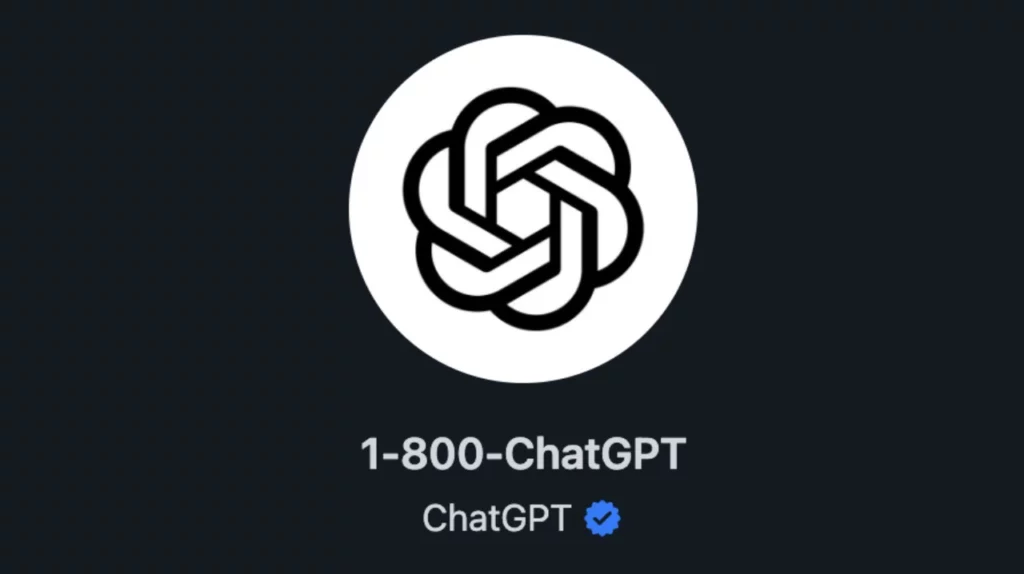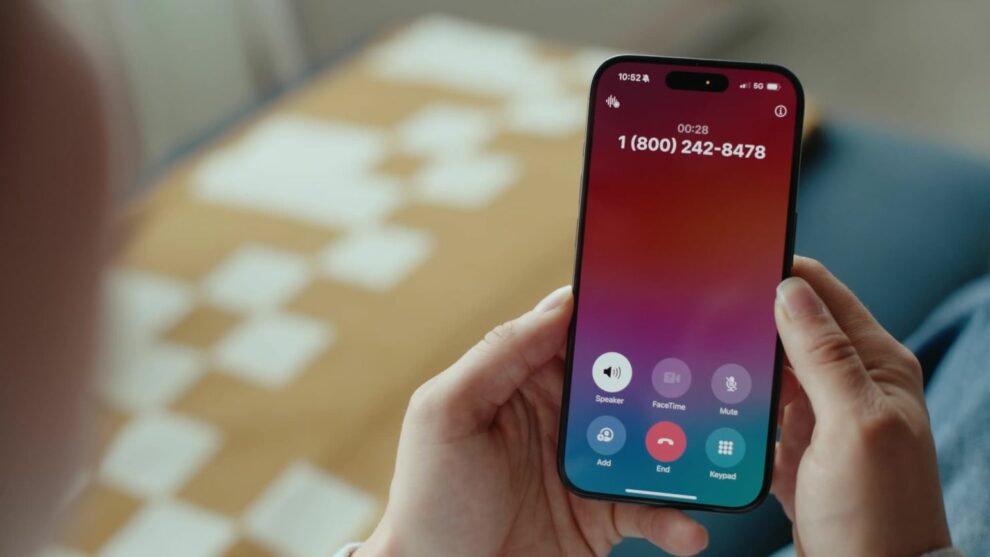OpenAI has taken an unexpected step back in time to move artificial intelligence forward, launching a revolutionary phone service that allows anyone to speak directly with ChatGPT through a simple 1-800 number. This nostalgic approach to cutting-edge technology has already garnered significant attention, with CEO Sam Altman noting the overwhelming positive response from users.
The service represents a clever strategic move by OpenAI to broaden ChatGPT’s accessibility beyond its traditional web and app interfaces. By leveraging the familiar format of a toll-free number, the company has created an engaging way for people to experience AI technology without the usual barriers of downloading apps or creating accounts.
Early testing reveals that the phone service delivers a surprisingly polished and natural conversational experience. Tech columnist Jason Aten’s recent exploration of the service highlighted its superior voice recognition capabilities compared to other AI assistants. The system demonstrates an impressive ability to understand and respond to voice prompts with remarkable accuracy and contextual awareness.
What sets this implementation apart is its blend of sophistication and simplicity. When Aten tested the service with a seasonally appropriate question about children’s snow day rituals, ChatGPT responded with precise, culturally aware answers that matched exactly what real children would say. This level of natural interaction suggests that OpenAI has successfully bridged the gap between advanced AI capabilities and everyday conversation.
The timing of this release appears particularly strategic as it coincides with the holiday season, when families and friends gather together. This social context creates natural opportunities for existing ChatGPT users to demonstrate the service to others who might be curious about AI but haven’t yet taken the plunge into using it. The simplicity of dialing a phone number removes the technological barriers that might otherwise deter less tech-savvy individuals from exploring AI capabilities.
Despite the apparent simplicity of the concept, the implications for AI adoption could be significant. While the service might seem like a novelty or party trick at first glance, it represents a clever approach to democratizing access to AI technology. In an era where most people prefer text-based communication and rarely make phone calls, OpenAI has paradoxically used this outdated medium to create a more accessible entry point to their technology.

The service also stands out for its approach to voice interaction. Unlike the often-frustrating experiences with automated customer service bots, 1-800-ChatGPT appears to offer a more natural and enjoyable conversational experience. The system even responds appropriately to call recording notifications, demonstrating a level of conversational awareness that makes the interaction feel more genuine.
OpenAI’s investment in this service, including securing the vanity number, suggests a serious commitment to expanding their user base beyond tech-savvy early adopters. While the company hasn’t released specific usage statistics, Altman’s public comments indicate that the response has exceeded expectations, suggesting that this retro approach to AI accessibility might have tapped into an unmet need in the market.
From a business perspective, the strategy appears well-calculated. While existing ChatGPT Plus subscribers and regular users might not find themselves frequently dialing the number, it serves as an excellent marketing tool and introduction to AI capabilities for new users. The service effectively reduces the psychological and technical barriers to entry that might otherwise prevent people from exploring AI technology.
The launch of 1-800-ChatGPT also raises interesting questions about the future of AI accessibility. By choosing to implement this service through one of the most traditional communication methods available, OpenAI has demonstrated that innovation doesn’t always require cutting-edge delivery systems. Sometimes, making advanced technology more accessible means meeting users where they are most comfortable.
This approach to AI accessibility could have far-reaching implications for how other companies think about deploying their own AI solutions. The success of this seemingly counterintuitive implementation suggests that there might be other overlooked, traditional channels that could be effectively used to introduce advanced technologies to broader audiences.
As artificial intelligence continues to evolve and integrate into daily life, OpenAI’s phone service might represent more than just a clever marketing tool. It could signal a shift in how we think about making advanced technology accessible to everyone, regardless of their technical expertise or comfort with modern digital interfaces. By making AI interaction as simple as dialing a phone number, OpenAI has created a unique bridge between traditional communication methods and cutting-edge technology.
















Add Comment